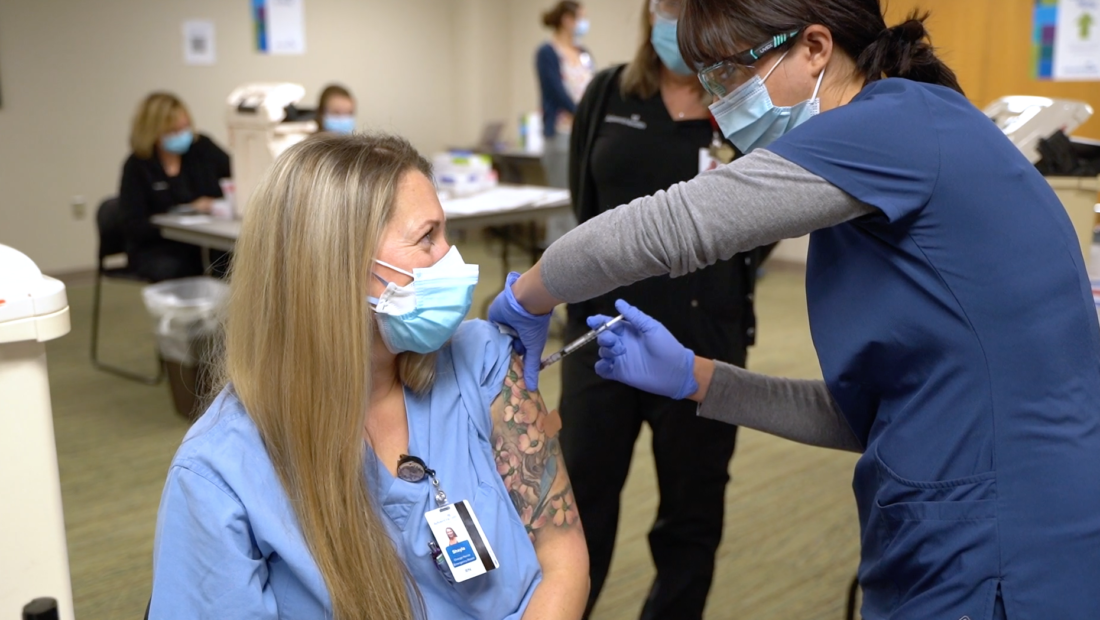Spring is in the air, and with the changing weather comes a significant easing of North Carolina’s COVID-19 restrictions. The latest executive order from Gov. Roy Cooper raises the indoor mass gathering limit from 25 to 50 people and the outdoor mass gathering limit from 50 to 100. All evening alcohol sale restrictions have been lifted; however, restaurants can still sell alcoholic mixed drinks for takeout and delivery.
Retail businesses, salons and personal care services, aquariums and museums can now operate at 100% capacity. Restaurants, breweries, gyms and fitness centers, pools and amusement parks can now operate at 75% capacity indoors and 100% capacity outdoors. And conference centers, bars, lounges, clubs, sports arenas, auditoriums and live performance venues can operate at 50% capacity both indoors and outdoors.
With key metrics like the number of COVID-19 cases, hospitalizations and the percent positivity remaining stable, North Carolina is in a “promising place,” said N.C. Health and Human Service secretary Dr. Mandy Cohen. All businesses must continue to maintain 6-foot social distancing, and the statewide face mask mandate will remain in effect through at least Friday, April 30.
COVID-19 vaccines available to all on April 7
For many North Carolina residents, the wait for a COVID-19 vaccine may soon be over. All essential workers and people living in congregate living settings can begin scheduling appointments on Wednesday, March 31, Gov. Cooper announced at a March 25 press conference. All remaining adults will become eligible on Wednesday, April 7.
According to March 26 data from the N.C. Department of Health and Human Services, 26.4% of North Carolina’s total population is at least partially vaccinated. Of the people who have received at least one shot, 70.8% are white, 15.7% identify as Black or African American, 3.2% are Asian or Pacific Islander and 0.7% are Native American.
To find a vaccine provider, visit avl.mx/96o.
City water fees likely to rise
Asheville water customers are likely to see their bimonthly bills jump by an average of $6.56 next fiscal year, city staff announced at an Asheville City Council budget work session on March 23. The move comes after two lawsuits forced the city to stop charging customers a monthly water capital improvement fee; that fee raised nearly $7.5 million last fiscal year.
According to projections shared by Asheville’s interim finance director, Tony McDowell, the average water bill will jump from $63.42 in the upcoming fiscal year to $75.27 by the start of the 2024-25 fiscal cycle. Average annual revenue in that same period is expected to go from $38.8 million to $41.9 million. The topic is expected to go before Council at an upcoming regular meeting, at which point community input will be heard.
Latest round of One Buncombe funding helps protect more than 400 jobs
In its second round of disbursements, the One Buncombe Fund has awarded $475,000 to 116 area businesses adversely impacted by the pandemic. The funds will help retain 253 employees and rehire an additional 153, reports Buncombe County in a press release.
The fund intentionally focused on women- and minority-owned businesses that were not eligible for other pandemic relief programs, the press release says. Roughly 36% of grants went to businesses owned by people of color, 64% were awarded to woman-owned enterprises and approximately a third of the grants were given to sole proprietors.
BorgWarner invests $62.25M in Arden facility
The Asheville-Buncombe County Economic Development Coalition announced in a March 3 press release that vehicle propulsion technology company BorgWarner will invest $62.25 million in its Arden campus. With this investment in technology and machinery, the company plans to employ more than 600 people in logistics, production, engineering, operations and management at the facility.
“Investment in high-tech, advanced automotive manufacturing companies, like BorgWarner, is key to the sustained and diversified economic growth of Western North Carolina,” said Michael Meguiar, chair of the Asheville-Buncombe County Economic Development Coalition, in a press release. “Our ability to support these industries will build a strong foundation for generations to come.”
Woodfin Planning and Zoning Board to continue Bluffs discussion April 5
The Woodfin Planning and Zoning Board of Adjustment is set to resume its consideration of a conditional use permit for the proposed 1,400 unit Bluffs at River Bend development on Monday, April 5. A lawyer representing developer John Holdsworth and an attorney retained by residents of Richmond Hill clashed over a permit application to exceed the town’s standard 35-foot building height limit for nearly six hours at the board’s March 1 meeting.
Community members are concerned that the development would increase traffic volume on adjacent roadways and send more stormwater runoff into the French Broad River. But attorney Derek Allen, who represents the developer, maintains that the only consideration for the Planning and Zoning Board should be the height change.




Before you comment
The comments section is here to provide a platform for civil dialogue on the issues we face together as a local community. Xpress is committed to offering this platform for all voices, but when the tone of the discussion gets nasty or strays off topic, we believe many people choose not to participate. Xpress editors are determined to moderate comments to ensure a constructive interchange is maintained. All comments judged not to be in keeping with the spirit of civil discourse will be removed and repeat violators will be banned. See here for our terms of service. Thank you for being part of this effort to promote respectful discussion.